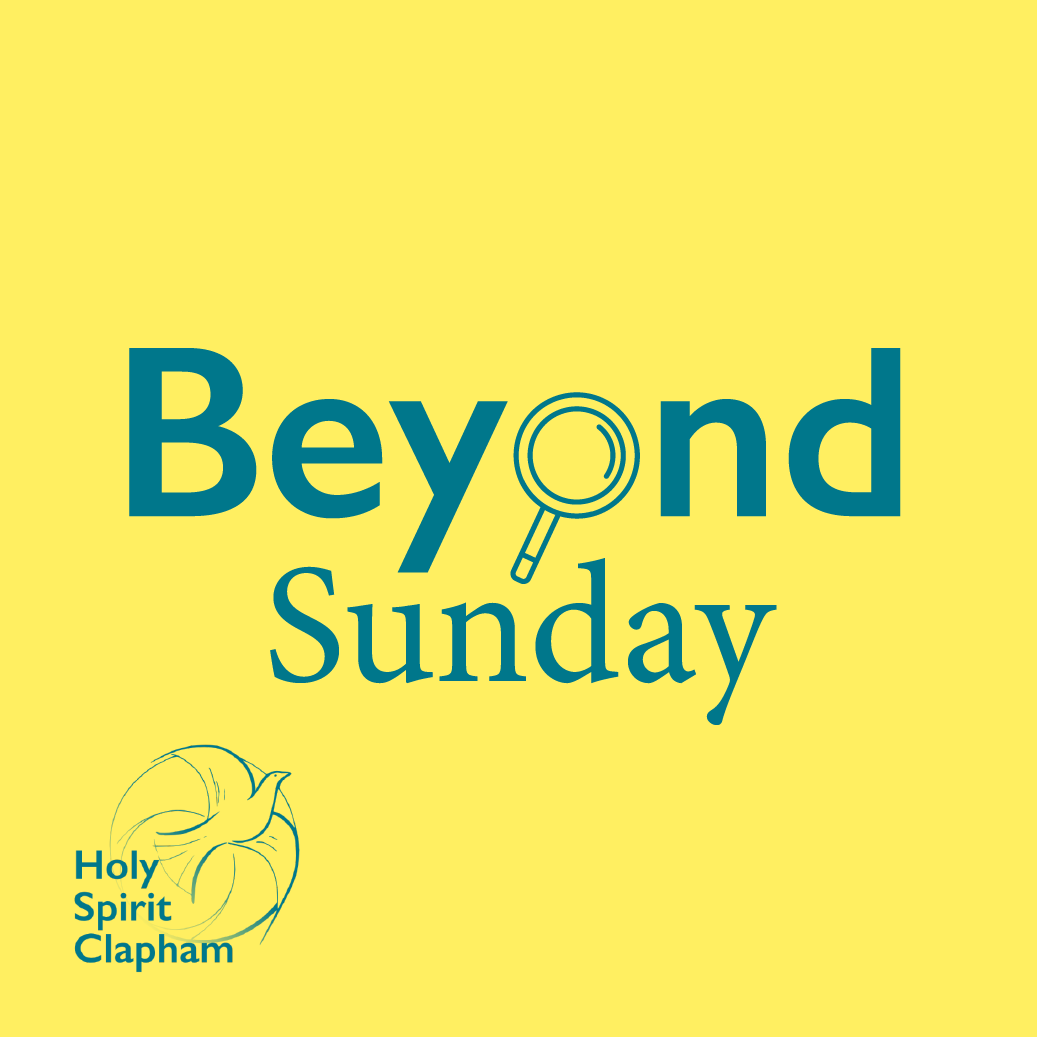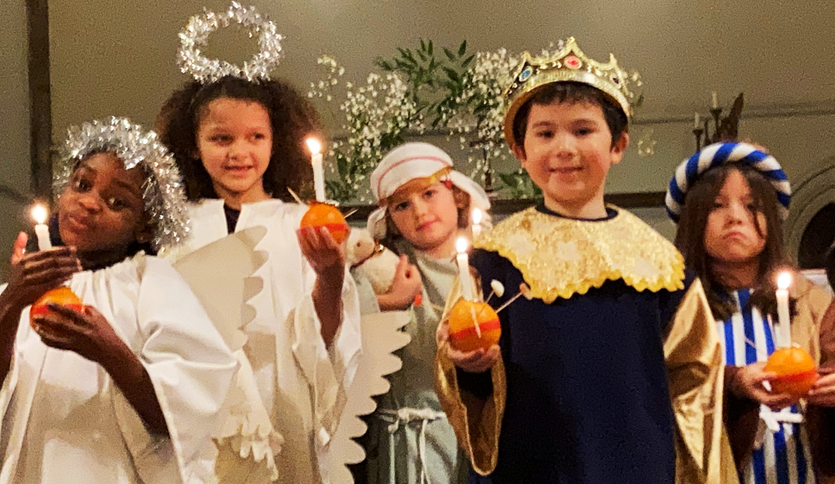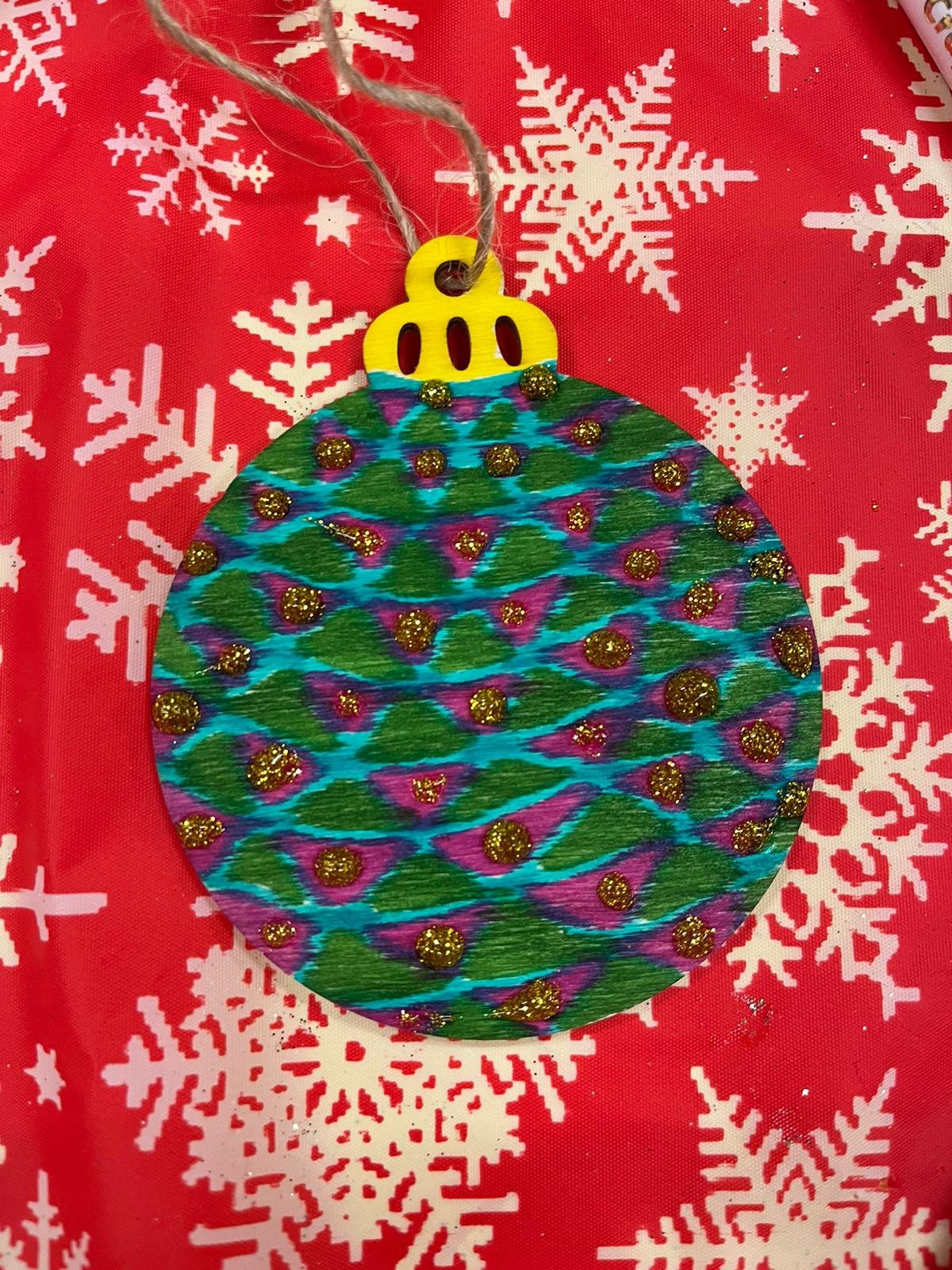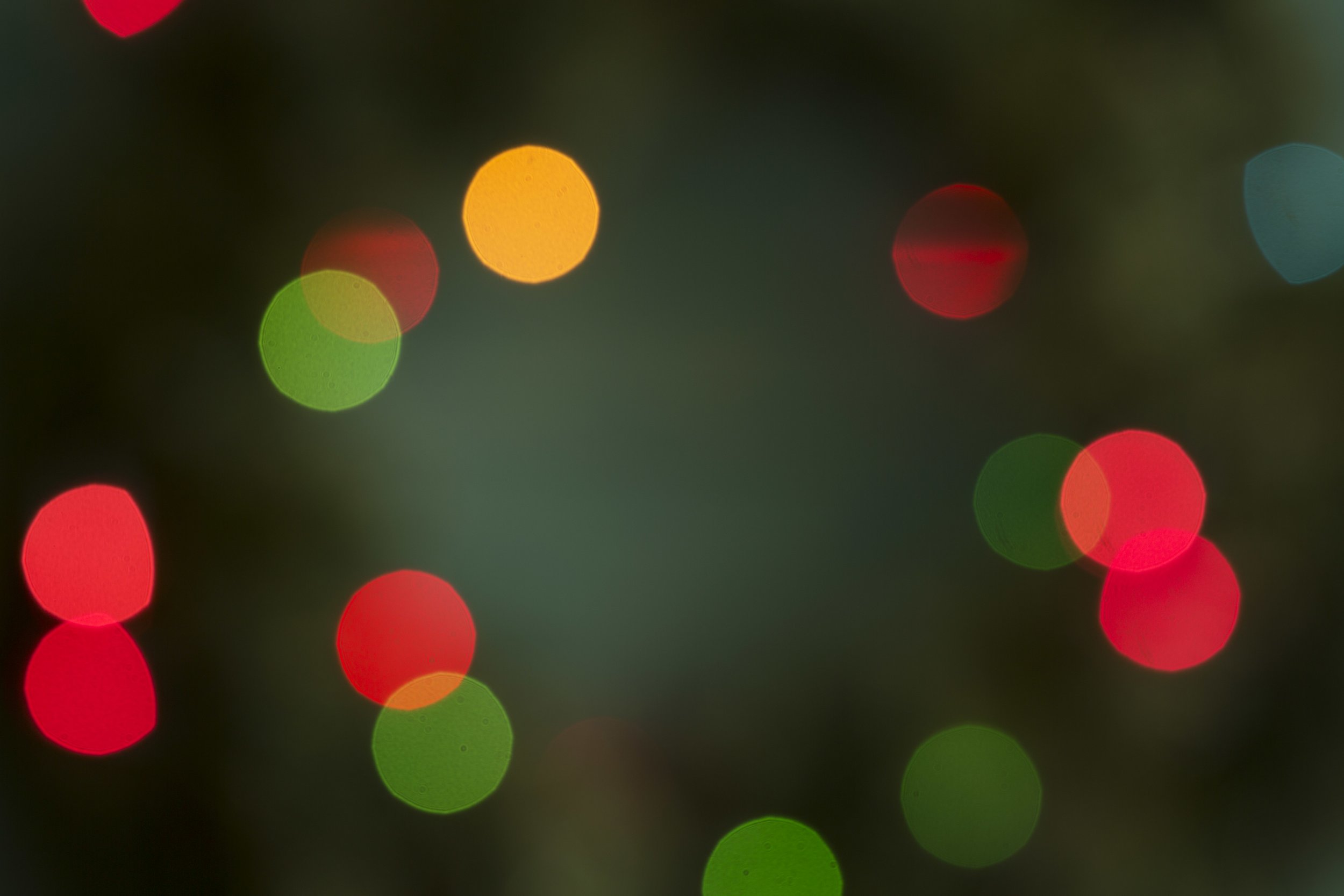
Ask the Vicar! (Copy)
On Wednesday 31st January, we’re holding our next Beyond Sunday event entitled I've Always Wanted to Ask... Q&A with the Vicar.

Third Sunday of Epiphany
Today’s readings are both concerned with the truth: whose words do we trust? And what is the impact of speaking truth? In Deuteronomy 18.15-20 we are promised that God will not leave us in ignorance but will speak to us in words that we can understand: “I will raise up for them a prophet like you from among their own people; I will put my words in the mouth of the prophet, who shall speak to them everything that I command.” However, the prophet recognises that speaking truth is risky: those who speak wrongly risk death, those who do not heed the truth will be held accountable. This perhaps explains some of the anxiety felt by those hearing Jesus teaching in Mark 1:21-28, he is not a scribe and yet “he speaks as one with authority”. The proof of the pudding is, as ever, in the eating. Jesus speaks to the man with unclean spirits and his words set the man free, his demons leave him. We can trust those whose words lead to healing, wholeness and freedom. But truth does not come without a cost. There is a warning in both these readings: there are those who will oppose the truth, those whose own power and position is invested in the status quo or those who are afraid of the change that truth will bring. The truth will set us free but we must be prepared to fight for it.

Second Sunday of Epiphany
“The truth will set you free” (Jesus), “but first it will piss you off” (Gloria Steinem). The season of epiphany is all about truth being revealed, the truth of who Christ was and the truth of who we really are. In our gospel this morning, John 1:43-51, Nathanel is initially unprepared to hear the truth. He cannot accept that God would choose someone from Nazareth: “can anything good come out of Nazareth?” He accepts it only when Jesus speaks truth to him and truly sees him as he is. For Eli, in 1 Samuel 3:1-10, the truth that God speaks to Samuel will be hard to hear. Yet he knows that, however uncomfortable or unpleasant, the word of God will bring renewal. He has the humility to recognise that God’s truth is often given to the overlooked and the undervalued and so graciously helps Samuel open his ears to God’s call. He models for us the work of the community of faith: nurturing, encouraging and listening deeply to the experiences of those who are often overlooked that we might receive the truth God is speaking to us.

Feast of Epiphany
Today we celebrate the feast of the Epiphany, the wise men from the East travelling far from home to find the Christ child. Our readings are full of wonder: the gifts of gold, frankincense and myrrh brought by the wise men in Matthew 2:1-12, echo the prophesy in Isaiah, 60:1-9, that the nations will be drawn to God’s light bringing with them, gold, frankincense, camels and rams. For Isaiah these gifts are for the rebuilding of the city of Zion, God’s home on earth. But in Matthew the gifts are offered to a child, a child soon to be made homeless by Herod’s genocide, a child who will grow up with no place to lay his head. Both readings are resonant with the idea of home: Isaiah foresees the children returning home from far away; the wise men need to find another way home. God’s home is no longer a fixed place but travels alongside those who flee injustice, those who are desperate to find a home. We discover that, wherever we come from, our true home is to be found in travelling with God and that, finding ourselves at home in God, we are at home everywhere.

First Sunday of Christmas
This first Sunday after Christmas our readings move from the joy of Christ’s birth to ponder what it means for God to dwell with us. The God who comes to us is not necessarily the God we expected. Both Simeon in the gospel, Luke 2:22-40, and Paul in his letter to the Galatians 4:4-7, perceive that this God is not just for those who were expecting God, for those “under the law” but for all peoples. Yet both still distinguish between peoples of different nations and different faiths: Simeon between the Gentiles and the people of Israel and Paul between those born under the (Jewish) law and those adopted into the household of God (Non-Jews). Both recognise the radical inclusivity of God and yet can’t quite move beyond the old hierarchies. Simeon rightly predicts that the move towards full inclusion will generate tensions, that Christ will be “a sign to be opposed”. The radical inclusivity of God is still opposed both in the world and in the church. On this first Sunday after Christmas Simeon and Paul ask us a question: are we, who are adopted by grace prepared to accept all those who calls into the divine family? and if so, are we prepared, like Mary, for the suffering that may accompany living out God’s generous hospitality? Are we prepared to welcome a God who is different from the God we expected?

Christmas Festival Eucharist
Christmas is finally here and both of our readings give us a vision of Emmanuel, God with us, the arrival of God on earth. In Isaiah 52:7-10, this arrival is obvious, it is “in plain sight”; it is welcomed as the people “break forth into singing”; and it immediately impacts everyone and everything: Jerusalem is redeemed, the people are comforted, all nations see their salvation. The people have waited in darkness and finally God has arrived and brought about peace and goodwill on earth. But in our gospel reading,
John 1:1-14, God’s arrival is very different. It is not in plain sight but unrecognized and unseen: “the world did not know him … his own people did not accept him”. John’s gospel does not offer us an perfect ending, it offers instead a beginning, echoing the opening lines of Genesis and the start of all life. In this new story of creation, we do not sit and wait for God to bring salvation, we become the vehicles of that salvation. John does not tell us about the birth of Jesus, he tells us about the possibility of our own rebirth: we are the ones who are invited to be born again “not of the will of flesh, nor of the will of man, but of God”. We are the ones who are called to live out God’s promise of redemption, salvation and freedom not just in God’s time but in our time.

Midnight Mass
Despite Christmas being a public holiday, religion is largely regarded as private affair, a matter of personal conscience. For Isaiah, 9:2-7, religion was a public and political act: God’s presence would lead to freedom, the end of oppression, cessation of war between nations. He depicts God’s reign in political terms, his messiah will have authority and will rule kingdoms. In contrast, our gospel reading, Luke 2:1-14, presents us with a tiny town in a regional backwater: one small family, a bunch of labouring shepherds: surely not the stuff of political revolutions? Yet, Luke is making a most radical political assertion: he begins the story with the rule of the emperor Augustus and the governor Quirinius and then tells us that God is not working through the powerful and the mighty, but through the ordinary and everyday lives of mothers and labourers, of you and me. We are the agents of God’s revolution, we are the ones who are to work, in our small and ordinary lives, to bring freedom, peace and flourishing to all God’s people..

Christingle Service
At 4pm on Christmas Eve, church is transformed for our family Nativity service, complete with readings, carols and a full cast of characters in costume, armed with candles!
Children, bring your family and join in the fun, just please try not to set each other on fire!

Third Sunday of Advent
On the third Sunday of Advent every year we celebrate John the Baptist but the readings are not about John, they are about the one he comes to prepare for. When questioned about who he is, in John 1:6, 19-28, he tells us who he is not. It is not about him, he here to tell us about another; one who is unrecognised, the one who stands among us, yet we do not know. The one announced in Isaiah 61:1-4, 8-11 who will bring healing, freedom, comfort and renewal to all God’s people. Unlike John, who calls to us from the empty wilderness, our lives are full and busy and we know who we are: colleague, neighbour, parent, friend. But like John, the only truly important thing about us is our calling to recognise Christ in our midst and prepare the way for God’s promise to be fulfilled in bringing good new to the oppressed, binding the brokenhearted, granting liberty to the captive and proclaiming the year of the Lord’s favour.

Traditional Service of Lessons and Carols
On Sunday 19th December at 6.30pm, make a bee line for church for a traditional service of lessons and carols.
There is no better way to be reminded of the importance of the Nativity than through this familiar selection of readings and music.

Second Sunday of Advent
Both our readings today cry out to us from the wilderness. The People of God in Isaiah 40:1-11, have been forcibly taken from their homeland to be slaves in a foreign place. In Mark 1:1-8, it is John the Baptist whose voice calls to us. When we find ourselves in the wilderness our readings instruct us to cry out. The exiles in Isaiah are not sure whether this will do any good: “what shall I cry?” “the people are but grass” no one is listening, no one cares, will speaking really make a difference, will anything change? God gives us a hint, the glory of the Lord shall be revealed, because “the mouth of the Lord has spoken”. We need to remind ourselves that words are the most powerful thing we have: in the beginning God spoke and the whole world of possibilities came into being. If we want to find a way in the wilderness and rivers in the desert we need to find our voice. And then we need to use it. To bring to light all the ways in which our world can leave people in the wilderness and to reimagine a world in which the wilderness can be transformed.

Wreath Making Workshop
On Tuesday, 5 December 2023, 7-9.30pm, come along and learn how to make a Christmas wreath for your door.
All materials provided – you are welcome to bring along any extra adornments!
Tickets £40 - Glass of mulled wine and mince pies included.

Launch of Beyond Sunday
On Thursday 30 November we launched our new programme of talks and discussions, Beyond Sunday.

Advent Sunday
We're all doomed! Wars and rumours of wars, death, persecution, famine and earthquakes. Every age sees parallels between the difficulties of their own times and apolcalyptic texts such as the one we hear this morning in Matthew 24:1-14. The advice given then is still pertinent to us now: beware being led astray; learn to endure; these are but the birth pangs... Our passage begins with the disciples being impressed by the size and grandeur of the temple. Jesus responds by predicting its collapse. The things that look strong and secure are not necessarily the ones that you should put your trust in: Temples crumble, nations fall, markets crash, economies tank. In an uncertain world Jesus does not offer us certainty. We can never work hard enough, be pious enough, acceptable enough, or attain enough to leave all our uncertainties and insecurities behind. Instead, faith shows us that our security lies in relationship. Today as we welcome the newly baptised we recall that we are loved, that our security and our identity rest in God who created and sustains all things and loves us unconditionally. This may not give us certainty but it gives us confidence and courage to live as people whom God claims as her own.

Thank you!
This year’s Christmas Fair took place on Saturday, 25th November. Huge thanks to the Events team (Judith, Kathryn, Paula and Rachel) and all the volunteers, musicians, singers and stallholders who, together, made the day such a success.


Christ the King
It is pretty easy to distinguish a sheep from a goat. It is also pretty easy to distinguish a king from his subjects, one with power from one with no power: those being served have power and authority, those serving them do not. It’s all pretty binary and straightforward. But what happens when the sheep start acting like goats and the goats like sheep? Today we celebrate the feast of Christ the King. At first sight, the Kingdom of God looks pretty binary too: the sheep are in, the goats are out, those who serve are in and those who do not are out. Jesus has just given power to those who do not have it and taken it from those who do. But Jesus never takes power from anyone or exerts power over anyone. Instead, he offers everyone the opportunity to use their own power. When we choose to use our power to serve, not those with power but those without power; when we give voice to the voiceless, champion the weak and care for those in need, we become part of the Kingdom of God.

10:30 Family Service for The Christ is King
It is pretty easy to distinguish a sheep from a goat. It is also pretty easy to distinguish a king from his subjects, one with power from one with no power: those being served have power and authority, those serving them do not. It’s all pretty binary and straightforward. But what happens when the sheep start acting like goats and the goats like sheep? Today we celebrate the feast of Christ the King. At first sight, the Kingdom of God looks pretty binary too: the sheep are in, the goats are out, those who serve are in and those who do not are out. Jesus has just given power to those who do not have it and taken it from those who do. But Jesus never takes power from anyone or exerts power over anyone. Instead, he offers everyone the opportunity to use their own power. When we choose to use our power to serve, not those with power but those without power; when we give voice to the voiceless, champion the weak and care for those in need, we become part of the Kingdom of God.

Second Sunday before Advent
As we head towards the end of the church year and our texts focus on the end times. Like last week, both of our readings this morning are about judgment. Zephaniah 1:7-18, predicts a harsh outcome for his people; a similar fate awaits the lazy servant in the parable of the talents in Matthew 25:14-30. The same reason is identified by both texts: misuse of the gifts that have been given. The book of Zephaniah charts the undoing of God’s good creation by humanity: a desire to possess and hoard and to use resources for solely for our own good. The poor servant in the parable does not appear to have been acting for personal gain, instead he acts out of fear: it is better, he thinks, to preserve what he has than risk losing it. The root of this fear is a lack of trust which prevents him from using what he has. Both readings ask us to consider what we place our trust in and what we look to for security. Do we trust God to provide us with all we need to flourish? Everything we have and everything we are, is given freely. God trusts us to risk using it to build up of the whole of God’s creation.

Christmas Fair 2023
This year, the Christmas Fair will be held on Saturday 25th November from 12noon until 4pm in church.
Come along and join in the festive fun with craft stalls, mulled wine & mince pies, kids' activities and live music.
Everyone welcome, no exceptions!
